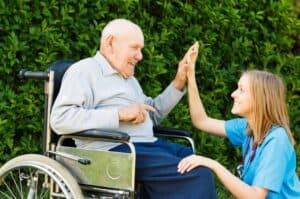
8 Memory Care Requirements That You Need to Consider Before Committing Your Loved One
Have you noticed a decline in cognitive and memory abilities as your loved one ages? In some individuals, this decline can be more pronounced, resulting
As our loved ones age, we must care for them and ensure they are safe. Caring for a senior at home comes with challenges, especially when they are struggling with mobility issues. With age comes a decrease in mobility; fortunately, some devices can assist your loved one with mobility loss.
In most cases, our loved ones need our help moving from one position or place to another and accomplishing activities of daily living like getting out of bed, bathing, and dressing. When you assist your loved one with their mobility, you are helping them maintain their independence and dignity and ensure their general well-being.
Getting in and out of bed can pose a challenge even to a young person without years of muscle stress and joint pain. Most seniors usually wake up sore and stiff.
When your loved one has mobility issues, moving from one point to another might be impossible without assistance. You may be worn out as a caregiver, especially if you lift your loved one alone without help. However, you don’t have to strain your back as there are some mobility tools, such as a Hoyer lift which can help. With these mobility tools, you can safely and efficiently assist your loved one with their mobility.

A caregiver can use this mobility assisting tool to help a senior with mobility issues get in and out of the bath or bed safely without applying too much physical strength.
A Hoyer lift is essential, especially when doing a full-body lift. It’s named after its inventor and is also known as a portable patient lift or total body lift.
Studies show that the greatest source of overexertion injuries among caregivers and other healthcare professionals is repositioning or lifting patients under their care.
A Hoyer lift features an overhead bar, a U-shaped base, and a sling. These features help in repositioning, lifting, or lowering a senior into a bed or chair. Using a Hoyer lift in your everyday caregiving journey will significantly reduce your chances of physical strain and ensure the person you care for is safe.
Learning about the various parts and how they work together in a Hoyer lift is crucial to ensure you are well-prepared when using the lifting tool for your loved one. Although the Hoyer lift allows you to raise your loved one with minimal physical effort, you must practice on another person before lifting your aging loved one.
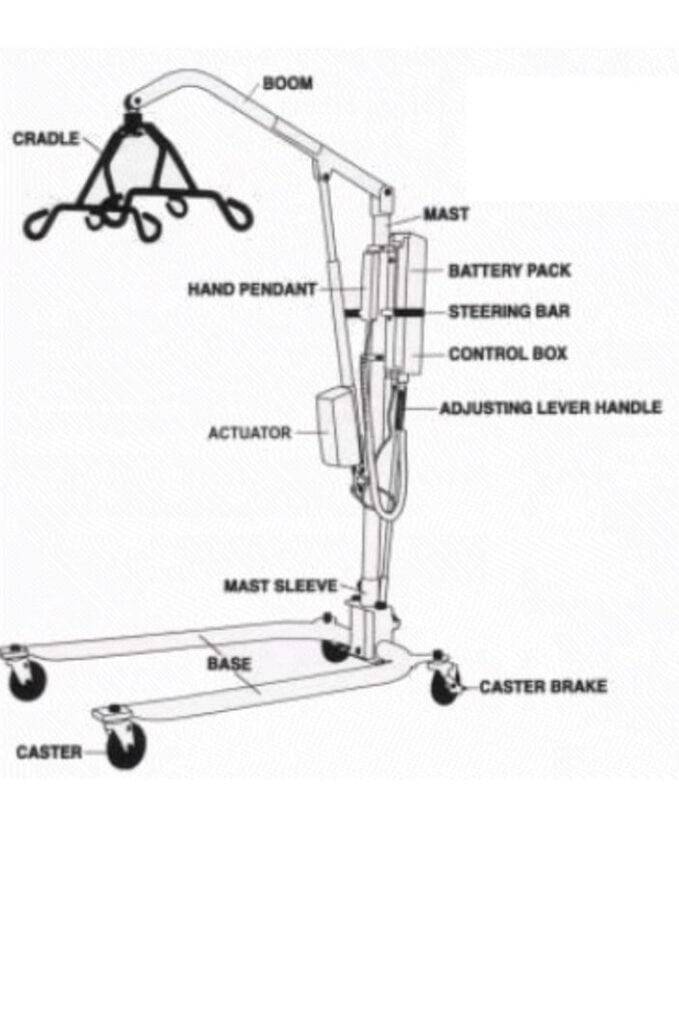
You can use several Hoyer lifts to move, reposition, or lift your loved one from one place to another. You can have a Hoyer lift installed on the wall or the ceiling, depending on your loved ones’ needs and the space of their room. Some of the available types of Hoyer lifts include:
This type of lift uses a hydraulic system to help you lift, move, or reposition your loved one and is commonly known as a hydraulic lift. A hydraulic lift has a lever you pull to raise the sling. A manual Hoyer lift is widely used at homes as it is budget-friendly.
This type of Hoyer lift has an electric motor that helps you move a person without using a lot of physical strength. A power Hoyer lift is the most expensive type but very safe for caregivers as you won’t have to strain your back when moving your loved one. If you are worried about power outages and their effect on a senior who might be in transit, worry no more, as it has a manual handle that ensures your loved one is not stuck on the lift due to power outages.
This type of lift helps secure seniors when shifting from seated to standing. The sit-to-stand Hoyer lift is ideal for a senior who is a little bit stronger. The Hoyer lift is perfect if your loved one needs assistance in standing or moving.
This type of lift is excellent as it offers long-term solutions and convenience when moving your loved one from one room to another without transferring them from a wheelchair. You can have someone install and secure the ceiling Hoyer lift on the ceiling tracks or free-standing.
When choosing an ideal ceiling Hoyer lift, you can select a design that best suits your loved ones’ needs. You can go for a bathroom, bedroom, or one designed to help move a senior throughout their entire house. With a ceiling Hoyer lift, remember to check if the design comes with a track and sling, as some products don’t have them.
A Hoyer lift will help your loved one as it provides secure and sturdy support to seniors while moving from one position to another. It also helps a caregiver eliminate shoulder, back, and neck injuries.

Hoyer lifts are ideal mobility tools for seniors and patients who need above 90% assistance getting into and out of bed or the bathroom. Additionally, if your loved one falls under one of these categories, they can significantly benefit from a patient lift, and they include
A wide range of physical limitations, medical conditions, and injuries can impact seniors’
mobility. Common among these is paralysis and stroke, which can make mobility among seniors impossible.
Mobility issues may interfere with their independence and limit a senior in most of their daily activities. Seniors with mobility issues may be unable to perform activities of daily living like bathing and dressing, among others.
Prolonged sitting or lying in one place may pose challenges like chronic back pain and bedsores. Mobility issues may be due to neuromuscular or orthopedic impairments. Mobility problems range from upper body impairments, which may limit the use of hands, to lower body impairment.
Physical limitations, injuries, and medical conditions will impact your loved ones’ lifestyle.
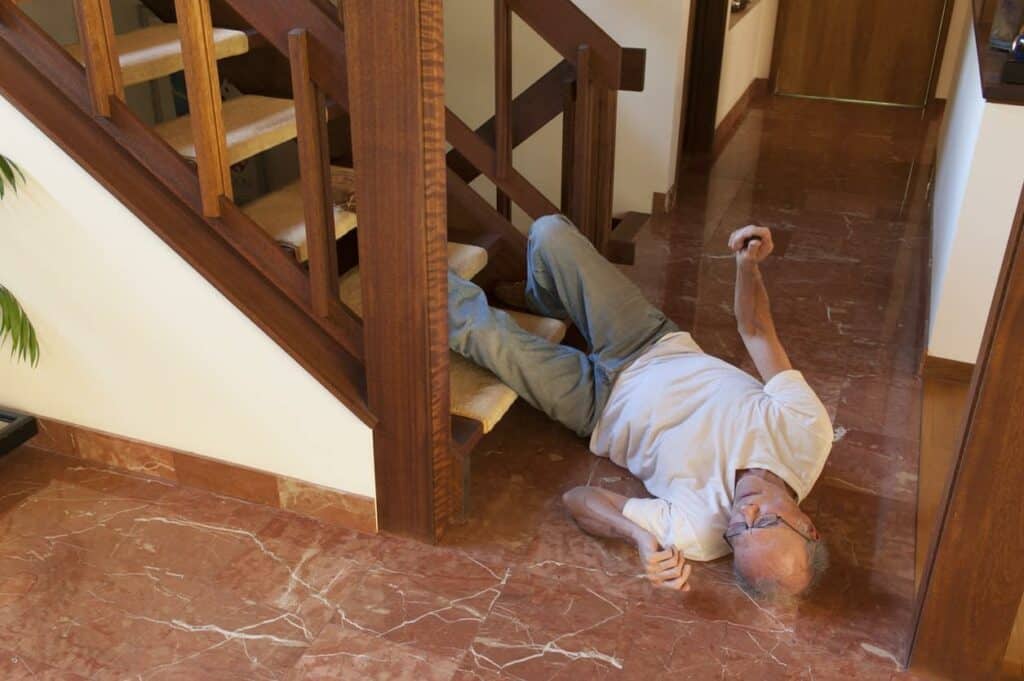
You might wonder where to start when looking into different types of Hoyer lifts. There are several factors that you should consider when buying a Hoyer lift.
Although most manufacturers make similar models, some differences can significantly affect the type of patient lift you buy.
Since buying a Hoyer lift is a significant investment, you should buy one that fits and meets your loved one’s needs. It would be best to take your time to consider the following factors and remember to have a chat with your loved one’s healthcare provider.
Determining the type of Hoyer lift that will work for your loved one is essential. The following tips are great for determining an ideal patient lift.
Electric lifts are easy to operate, although expensive, while manual lifts are pocket-friendly. However, an electric hoyer lift will accommodate a higher weight than a manual one.
Patient lifts come in different sizes and shapes; you must look for one that will fit into your loved ones’ homes and still meet their needs.
Consider how you expect to use the Hoyer lift. Consider a portable Hoyer lift if a senior needs the lift for movements in several rooms. However, if your loved one only needs it in one room, it would be best to buy one that you can permanently fix in the room.
Depending on how you expect to use the lift, you may have to adjust the lift to fit the height you want. Choose a flexible lift that allows you to attain a desired height.
Once you have decided on the type of Hoyer lift you want for your loved one, the next step is to ensure it has the necessary mechanical features that fit your loved one’s needs. You can:
This is one of the determining factors when buying a Hoyer lift, as you want to buy something that fits your budget. Buying a Hoyer lift is one of the investments that will make your life as a caregiver more manageable and offer comfort to your loved one. There are various payment options that you can explore, and they include:

You can pay out of pocket for a senior’s Hoyer lift.
If you decide to buy a manual lift, Medicare will come in handy as it will cover a high percentage of the total cost.
You will need to have a chat with your loved ones’ healthcare provider so that you can obtain a prescription. Then, follow all the Medicare guidelines on approval and even purchase of the lift. However, if you decide on an electric Hoyer lift, you must have a different payment plan, as Medicare doesn’t cover it.
Check if your state offers veterans assistance regarding purchasing a Hoyer lift. Check on the application procedure for applying for the aid.
Although various patient lifts have different features, they all serve the same purpose. Patient lifts help you move, reposition, or transfer your loved one comfortably, safely, and efficiently.
Knowing and understanding how to use a Hoyer lift is essential to provide excellent care to your loved one.
Always follow the recommended steps in the manual carefully and slowly to minimize discomfort and further injuries to a senior during the transfer.
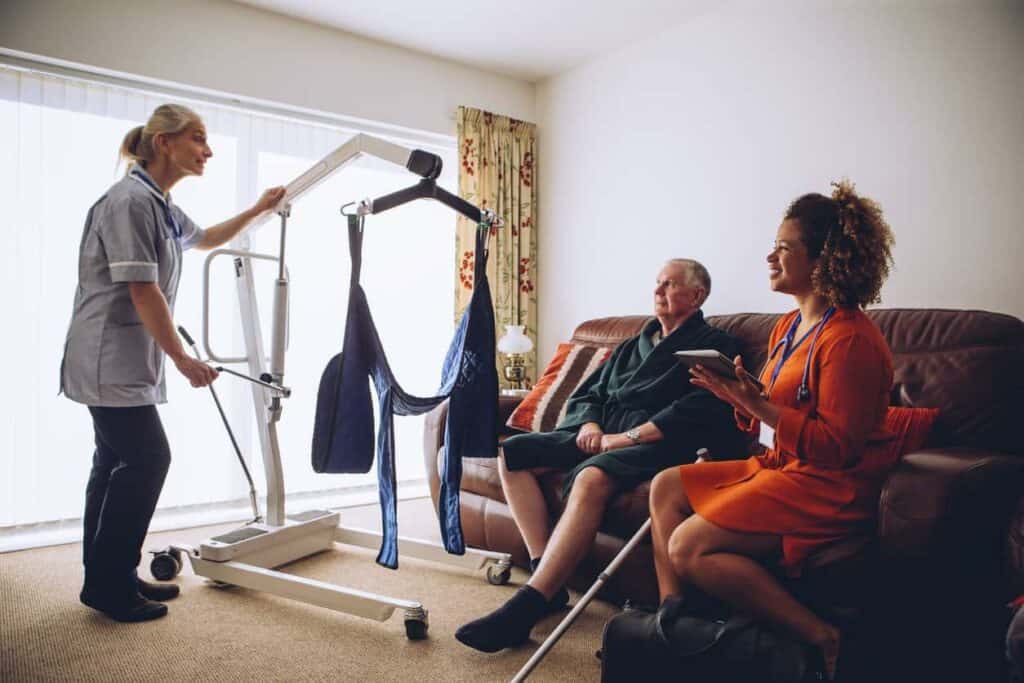
Ensure the area you are carrying out the exercise is clear. Remove any obstructions and clutter, as they may cause you to trip while using the patient lift or get caught in the wheels of the Hoyer lift. Once you have ensured the place is clear, set up the Hoyer lift.
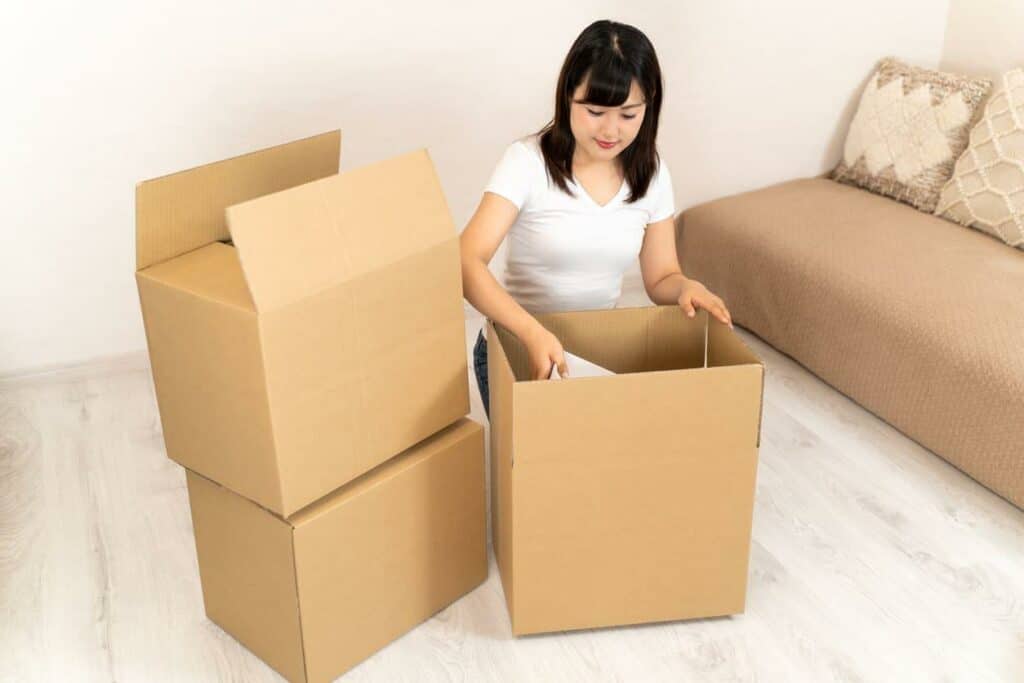
The next step is ensuring the lift is stable. A Hoyer lift has two legs that are parallel to the floor. These legs are then supported by four tightly attached wheels and locked. The legs ensure that the lift doesn’t move while you are transferring a senior.
When buying any model, use one that allows the legs to spread, offering additional support and ensuring the lift is stable.
Boom is the long bar at the top of the lift, and it holds the bar where you can attach a sling. You can move the boom up and down with either hydraulic or electric power.
Kindly check and ensure that you connect the swivel bar correctly to the boom before using the lift. Also, hook the sling well before putting your loved one into it.
Understanding different types of slings and how to use them when transferring your loved one is essential. Each sling has a specific function, and types include:
These are the most common slings, with a U shape giving them their name. This sling has two long extensions parallel, forming a “U” when used. This sling has some padding, making it more comfortable for most seniors.
A standing or a full-body sling is less common among most seniors but can be very beneficial. This full-body sling offers advanced head, neck, and back support, while a standing sling is ideal for a senior with partial mobility but requires additional head and neck support.
Before placing your loved one on the lift, ensure the lift has no defects like rips and holes in the sling. Although manufacturers make great slings, it’s advisable to inspect them as your loved one’s safety comes first. Once you are sure the sling is suitable, attach it to the hooks on the swivel bar.

The lifting process may vary depending on the type of the Hoyer lift.
For manual lifting, find the valve at the base of the hydraulic pump handle. When you see the valve facing toward the pump handle, it means the lid is closed. If the valve is facing away from the pump handle, you can raise or lower the boom.
Always carry out the operation of opening and closing the valve gently. Practice boosting and reducing the boom on someone else before putting your loved one in the sling.
Electric power Hoyer lifts make the work of lifting and transferring your loved one easy, but this doesn’t mean you shouldn’t be cautious. You must understand all the parts, such as emergency release, in case the power goes off. You can use an emergency release control to lower your loved one when the power goes off.
Once you have checked and ensured that the Hoyer lift is safe to use, check the maximum weight it can carry. Always go for a lift that can take a higher weight than that of your loved one.
Start the transfer depending on the condition of your loved one and the location of the transfer area. Moving a senior from the chair to bed and vice versa requires different methods and movements for the placement.
Carefully lower your loved one onto the intended place. Use specific methods to lower a senior to the desired position.
Ensure you carry out the entire process slowly and gently to avoid discomfort and injury.

When transferring your loved one into a chair, ensure you place them as far back as possible so they can be more comfortable. When lowering a senior onto the chair, let their back slide on the back. You can also tip the chair to prevent the lift from getting caught during the transfer.
Push your loved ones’ knees gently when lowering them to ensure they sit correctly. After placing your loved one on the chair, remove the sling by slowly pulling it upwards.
A sling bar is made of aluminum and has a safety latch that prevents the sling straps from slipping off the bar. When it comes to the safety and comfort of your loved one as you use a Hoyer lift, you need to select a suitable sling.
There are several slings to choose from, and sometimes you might be spoilt for choice. Use the following tips while choosing a suitable sling.
These types include
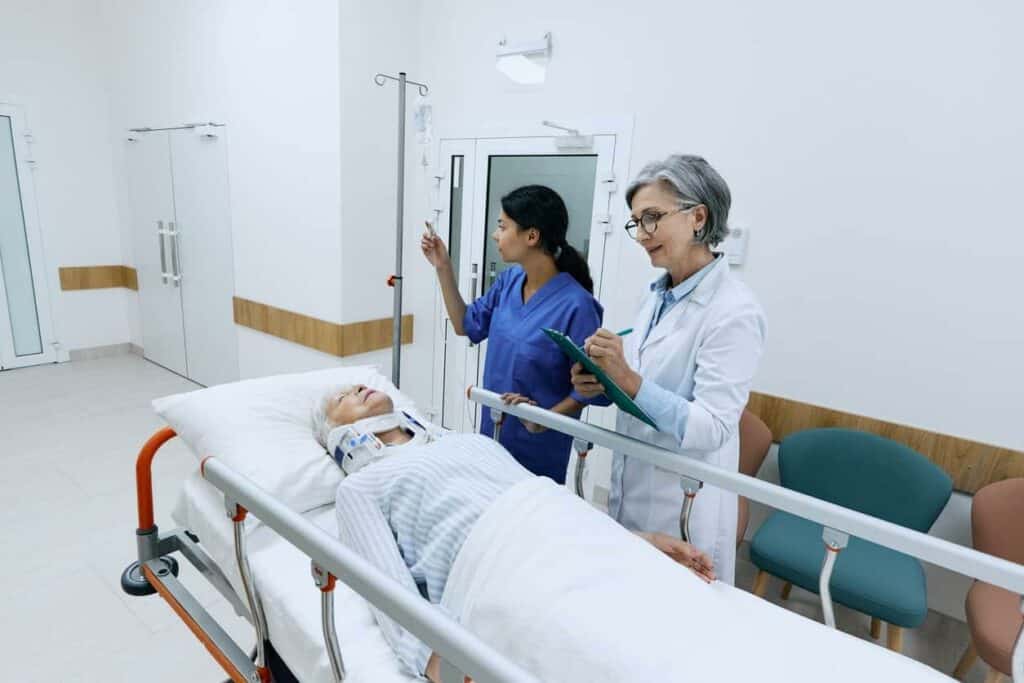
The type of a Hoyer lift determines its cost. For example,
An electric power Hoyer lift is the easiest to use and operate. You only have to push a button to raise or lower your loved one. When considering buying, you need to check what your insurance provider is willing to cover, as Medicare doesn’t cover it. The average cost of this type of patient lift is about $3,000.
One advantage of buying this type of patient lift is that Medicare covers much of its cost. Once you get a knack for using this lift, it becomes more manageable, but it is not the same as pushing a button to raise or lower it. The average cost of a manually operated or hydraulic hoyer lift is about \$400 to \$500.
This type of lift is ideal for slightly stronger seniors. The lift helps a senior to stand from a sitting position. The average cost of this type of patient lift is $1,000.
This lift is attached to the ceiling, and your loved one can move from one room to another. The only downside to this lift is the fact that they are expensive, and the cost will depend on the design. The average price of this lift is about $20,000.
Despite caregivers’ critical role in our lives, they often need to prepare for their role. At other times, they need more guidance and support from healthcare personnel.
Study shows that caregivers require soft skills, knowledge, attitudes, and resources to provide the best care to those under their supervision.
As a caregiver, you may grapple with the constantly changing medical conditions of someone under your care, emotional stress, medical knowledge, financial strain, and family dynamics.
To ensure you prepare and enroll in online classes to cover some courses that may help you in your duties as a caregiver. If you are struggling to manage your finances, take a finance course.
Caring for a senior with Dementia, stroke, or other medical condition that limits their mobility can be challenging. Taking courses that will help you understand your loved one’s medical condition will help you make informed decisions. When a senior decides to buy a Hoyer lift or any other assistive device, learning about the medical equipment and how to use it properly will make your life easier.
Joining several online caregiver support groups will help ease your burden as you can ask any question that’s bothering you and receive advice from someone knowledgeable who has gone through what you are going through. Also, it helps to know you are not alone and can have all the support you need when you need it.
Sometimes, it would help to involve the seniors you care for in your training, especially if you are learning about something that will impact their lives. You can listen to audiobooks together while walking around the neighborhood or gardening. After listening to your audiobooks, you can discuss your learning. Such exercises will prepare you and a senior to know what to expect as their illness progresses or how to use a specific medical tool.
Caring for your loved one can be challenging when they have mobility issues. You want to help them retain their dignity and independence while ensuring safety. You will have to assist a senior in conducting their activities of daily living, like getting in and out of the bathroom or bed.
Hoyer lift helps ensure your loved one is safe while transferring from a chair to bed, or any other transfer positions. Buying a Hoyer also helps prevent back pain and other overexertion health-related issues. It is crucial to seek training on adequately handling a patient lift.
If you need an extra pair of hands to assist your loved one with activities of daily living or transfer your loved one using a Hoyer lift, then Contact us today to find the ideal caregiver or caregiving service for your loved one.
Get care >

Have you noticed a decline in cognitive and memory abilities as your loved one ages? In some individuals, this decline can be more pronounced, resulting

When we think about healthcare for seniors, we might not think of sports therapists. They usually work with athletes and help them stay fit. However,
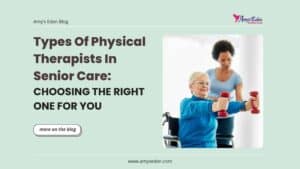
Are you considering physical therapy as a career option? Sometimes, you may or may not know what to expect once you become a certified physical
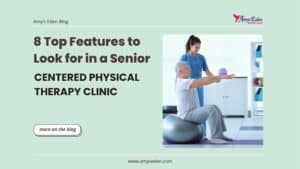
Do you find it harder to move around like you used to? Is chronic pain affecting your daily activities and overall quality of life? Do

Amy's Eden Senior Care © 2023